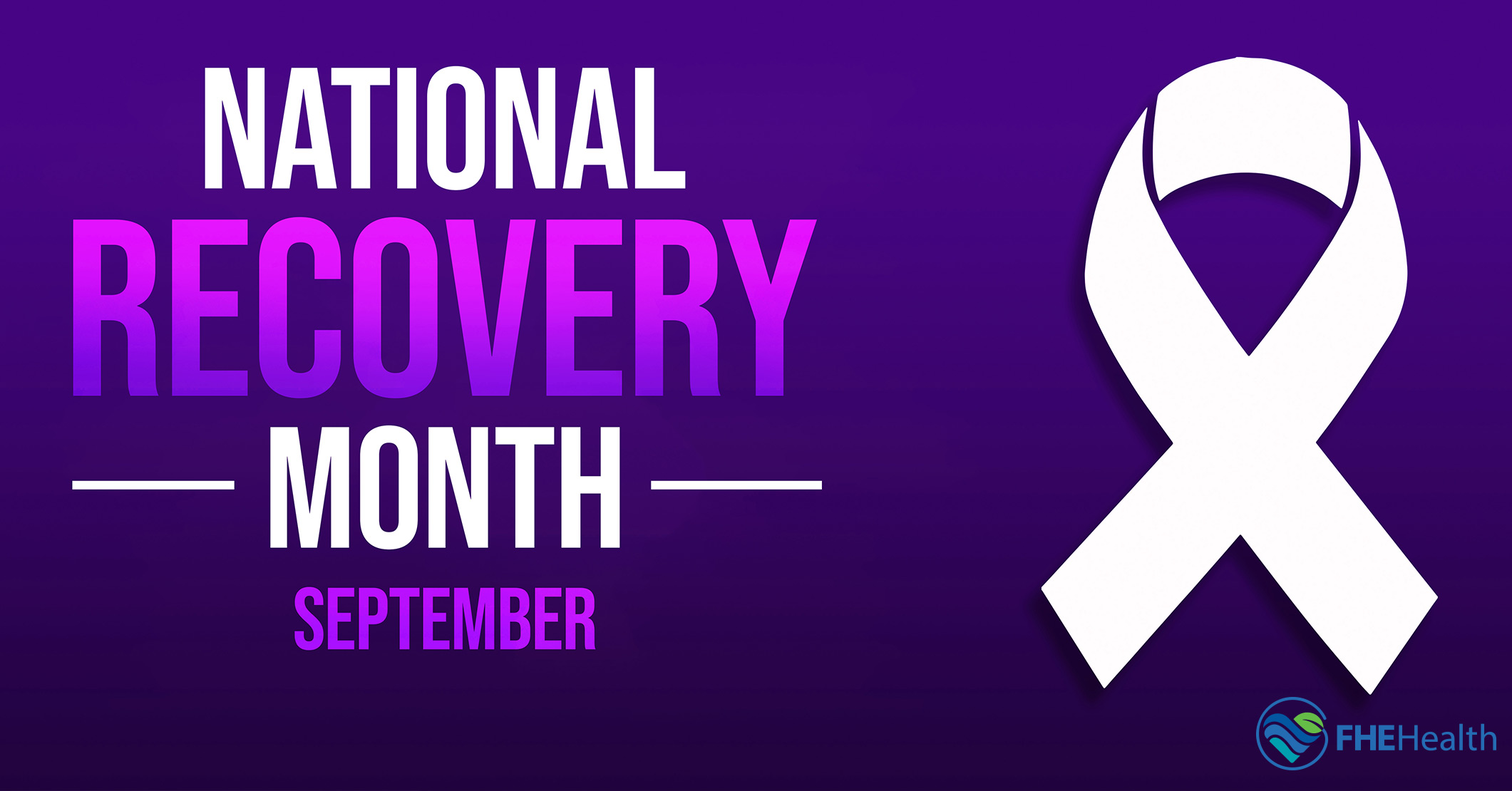
This article has been reviewed for accuracy by our peer review team which includes clinicians and medical professionals. Learn more about our peer review process.

September is National Recovery Month, and according to SAMHSA, it started in 1989 as “a national observance held every September to promote and support new evidence-based treatment and recovery practices, the nation’s strong and proud recovery community, and the dedication of service providers and communities who make recovery in all its forms possible.”
For FHE Health’s alumni director Joi Honer, BA CAC CADC, the month of September is also an opportunity for reflection about the gains made and the work still left to do.
“We have come a long way since 1989,” Joi said in a recent interview. “Public awareness of substance use disorders and recovery has grown substantially. So have evidence-based treatment options.”
“This progress is commendable,” Joi continued, “but we also have a long way to go to fully eradicate the stigma of use disorders and recovery.”
The Next Measure of Progress – Eradicating the Stigma
Ending stigma sounds ambitious, though. We asked Joi for some tips about how to be part of that good work, as “a recovery advocate or ally” in Joi’s words. What follow are her suggestions, also in her own words:
- “Practice and encourage empathy: Outwardly demonstrate understanding and compassion towards individuals struggling with substance use and mental health disorders.
- Destigmatize substance use disorder: Challenge stereotypes and promote a non-judgmental attitude towards those who still struggle with use and those in recovery.
- Support increased access to resources at a local and national level: Work to ensure that individuals can access affordable and effective treatment, harm reduction services, and support services.
- Collaborate with others: Partner with organizations and individuals to amplify the impact of your advocacy efforts. Look for local outreach services and commit to a day of action regularly.
- Share your personal stories: Use your personal experiences to humanize the issue and inspire others.
- Advocate for policy change: Speak up for policies that reduce barriers to treatment, offer harm reduction, and support people in recovery. Know what your policy makers support and vote accordingly.
- Remember that family members can also be powerful advocates and story tellers. Don’t discount them as valuable allies.”
Some Guidelines for Advocacy
Joi was quick to share some additional guidelines for how to navigate advocacy:
- “Don’t project your beliefs onto the message: Respect individual choices and avoid pushing a specific recovery path. For instance, say ‘recovery works’ versus ‘AA works.’
- Don’t perpetuate stigma: Avoid using stigmatizing language or promoting negative stereotypes about use disorders. Consider using person-first language, especially in public. For example, saying ‘a person with a use disorder’ rather than ‘an addict.’
- Occasionally, stop and check to see if your platform or advocacy will truly help those you are advocating for. Speak to stakeholders to find out if what you support will be genuinely helpful. Sometimes an advocate can get so caught up in the message that they forget who they are advocating for.
- Thinking globally is great, but you can often make a significant difference by acting small and locally. Going to the capital on a Saturday afternoon and protesting for more services is great but handing out Narcan to people in the local shelter or city park may be a more urgent effort.”
Going Public with Recovery
Talk to Joi for just a few minutes, and her passion for recovery and for advocating for recovery soon becomes evident. It is contagious. She ended on “one final note” with the following challenge:
Over the years recovery advocacy has been impacted by the misunderstandings around 12-step programming and the application of anonymity around public disclosure of a person’s personal recovery. However, even the founders of AA spoke at the level of press, radio, and film. You can find several instances where they openly spoke of recovery—with a simple google search.
It is important to know you can share your own recovery publicly without breaking any of the 12-step traditions. The organization Faces and Voices of Recovery has a wonderful explanation of advocacy with anonymity here. Anonymity in 12-step programs prioritizes confidentiality and creates a safe space for sharing, while public acknowledgment of recovery involves openly sharing one’s personal story to inspire others and advocate for change. Both approaches have their value and can coexist, as they serve different purposes in the broader context of recovery support.
“How a person chooses to advocate is up to them,” Joi said. “Not everyone should or needs to be open about their personal recovery. But those of us who can and who are comfortable with it, should pay it forward by speaking up. We must continue to recover out loud, so others do not die in silence.”
Joi added that she’ll be attending “Mobilize Recovery,” September 17-19, in Washington, D.C. The event seeks to empower recovery and end overdose. It is also a good way to become a better advocate for individuals and families affected by drug and alcohol use disorders.






